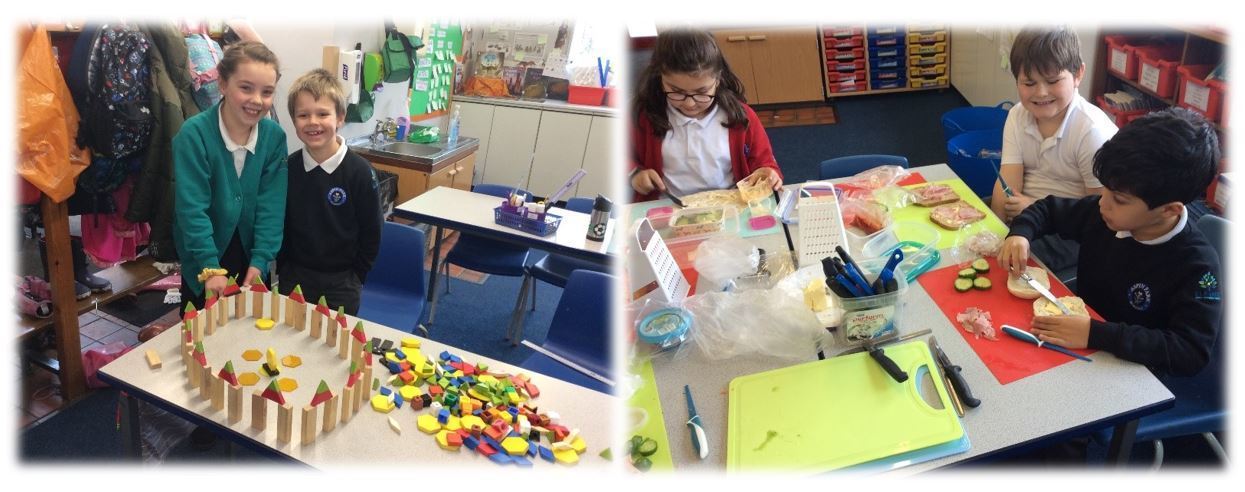Art & DT
Our Art and DT Flow Chart outlines key aspects of art teaching and learning in KS1 and KS2 at Aspin Park Academy.
Elevate Design Technology Knowledge and Skills progression
Elevate Art - skills and knowledge progression
Pedagogical Approach & Intent
Our Art and DT approach is to allow children to express themselves as individuals and in a creative way. At Aspin Park, we aim to allow children to use their imagination and be creative individuals who are confident designing, making, a range of products and pieces of art. Children will build on and apply their knowledge and skills and be able to persevere. They are given opportunities to reflect effectively on their designs and artwork and are encouraged to become innovators and risk-takers.
This is delivered through our pedagogical approach where we ‘sow the seed’ and engage the children in a new art or design topic with an exciting lesson launch introducing new artists, designers and skills
We engage the children by building on their own ideas, thoughts and experiences and allow them to express themselves.
We develop the skills and vocabulary through a carefully planned progression across the key stages
We celebrate art and design work by giving children termly projects that are recorded in sketch books and show the design, make evaluate approach
We implement our Art and DT curriculum through:
EYFS
- In the Foundation stage the children will continue to undertake rich cross curricular activities to assist in their progress working towards completion of their early learning goals. The children will also be assessed towards these learning goals
- DT and Art based activities will be carefully planned with regular opportunities to access a variety of tools and equipment. At least 1 DT and art provision area each week, focussing on a range of skill each week.
- Each project will follow the design process of · learning new skills Planning · Designing and making · Evaluating
- Although some tasks will be verbal communication (such as evaluating) every effort will be to increase the formalities of recording each stage of work. Photographic evidence of work (or video files of verbal work) will be taken and put on tapestry.
In Key stages 1 and 2, we follow the Elevate curriculum plan and skills progression. It allows opportunity for teachers to plan design and technology and art projects that link with their topics and adapt to the needs of their class.
The curriculum planning sequence allows for a launch activity that engages and excites the children about a new topic followed by a sequence of lessons that build on previous knowledge and skills with opportunities to create and make products and pieces of art before evaluating their own work and the work of others.
Each project will follow the design process of learning new skills planning and designing · Making · Evaluating
We explore a wide range of artists and designers work, supporting children to consider and evaluate their likes and dislikes.
Work is recorded in sketch books and shows the process of gathering skills and knowledge, designing, creating and evaluating.
Art and design projects are showcased in classrooms and on school open days
Where possible children are encouraged to use the outdoor environment for inspiration and design ideas. They can incorporate natural resources and materials into their art and designs.
The children are given opportunities to evaluate their own designs and products based on a clear set of criteria. All children are given the opportunity to engage in a wide range of D&T and art activities which actively encourage them to embrace the subject and develop a lifelong set of skills.
Impact
Children will have clear enjoyment and confidence in design and technology and art that they will then apply to other areas of the curriculum. As designers and artists children will develop skills and attributes they can use beyond school and into adulthood.
Assessment is carried out through a range of formative assessments which includes: pupil conferences, book scrutiny and pupil practical tasks. Assessment then informs planning, identifying any gaps in knowledge or skills, ensuring that our children have every opportunity to develop as inquisitive designers and artists.
In the Foundation Stage, the children’s development in Expressive Arts and Design is assessed throughout the year. Their observations, use of materials and individual expression inform teacher judgement and a holistic picture of the child’s development is celebrated.






















